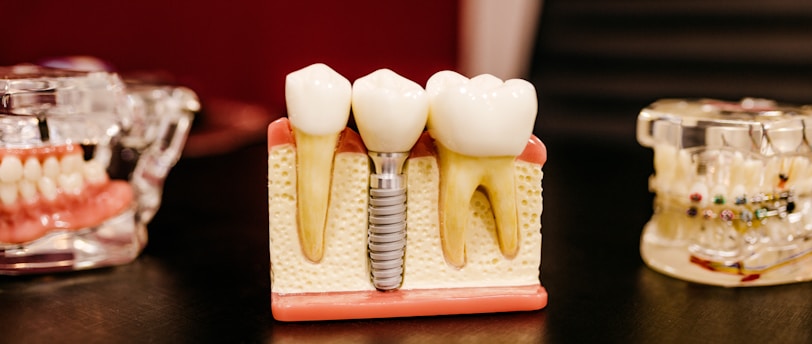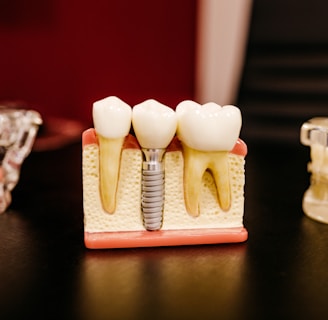Breaking Down Dental Anxiety
Tips for a stress-free appointment
4/13/20233 min read


For many individuals, the thought of visiting the dentist can invoke feelings of anxiety and dread. Whether it's the sounds of drills, the unfamiliar environment, or past experiences, dental anxiety is a common issue that affects a significant number of patients. The good news is that there are effective strategies you can use to manage this anxiety and ensure a stress-free dental visit.
Understanding Dental Anxiety
Before diving into coping strategies, it’s essential to understand that dental anxiety is completely normal. Many people experience varying levels of fear when it comes to dental visits. Understanding the source of your anxiety—whether it stems from fear of pain, loss of control, or embarrassment—can be the first step toward overcoming it. Knowing you’re not alone in this experience can help alleviate some of the dread.
Tips for Managing Dental Anxiety
1. Communicate Your Feelings: One of the most critical steps in addressing dental anxiety is to communicate openly with your dentist and dental team. Let them know that you’re feeling anxious. Professionals are trained to handle such situations and can offer more personalized care, whether that means taking extra time to explain procedures or providing reassurance and encouragement throughout your visit.
2. Schedule Wisely: Choose a time for your appointment when you’re less likely to feel rushed or stressed. Many people find that morning appointments are preferable, as they can complete their dental work before the day’s responsibilities set in.
3. Bring a Support System: If possible, consider bringing a friend or family member to your appointment for support. Having someone you trust by your side can help you feel more relaxed and provide comfort during the visit.
4. Practice Relaxation Techniques: Incorporate relaxation techniques into your routine to manage anxiety. Some effective methods include:
- Deep Breathing: Focus on your breath by taking slow, deep inhales through your nose and exhaling through your mouth. Aim for a count of four for each inhale and exhale to promote relaxation.
- Progressive Muscle Relaxation: Tense and then relax each muscle group in your body, starting from your toes and working your way up to your head. This technique helps release tension and induces a state of calmness.
- Visualization: Picture a calming place or experience, such as a beach or a serene forest, and immerse yourself in the tranquility of that setting.
5. Distract Yourself: Bringing distractions can help take your mind off the appointment. Consider using headphones to listen to music, an audiobook, or a podcast during your visit. Many dental offices also offer TVs or other forms of entertainment to help divert your attention.
6. Use Hand Signals: Establish a system of hand signals with your dentist to communicate when you need a break or if you are feeling uncomfortable during the procedure. This non-verbal communication can give you a sense of control and alleviate anxiety.
7. Arrive Early: Give yourself plenty of time to arrive at the dental office. Rushing can increase anxiety, so arriving early allows you to take a moment to relax before your appointment begins.
8. Consider Sedation Dentistry: If your anxiety is severe, discuss sedation options with your dentist. Techniques such as nitrous oxide (laughing gas) or oral sedation can help you feel more at ease during procedures. Your dentist can provide guidance on what method might be right for you.
9. Educate Yourself: Sometimes, fear stems from the unknown. Familiarizing yourself with the procedures you will undergo can demystify them and reduce anxiety. Ask your dentist to explain what they’re doing during the appointment, so you know what to expect.
10. Positive Reinforcement: Reward yourself after your appointment, regardless of how well it went. You could treat yourself to your favorite food, a movie, or a small self-care item. This positive reinforcement can help create a more pleasant association with dental visits.
Dental anxiety is a common challenge, but it doesn’t have to dictate your oral health journey. By using these strategies, you can take proactive steps to manage your anxiety and make your dental visits more comfortable and less intimidating. Remember the importance of open communication with your dental team—they’re there to support and help you through the process.
Your oral health is vital, and taking care of it should be a priority without the added fear. With the right techniques and a supportive environment, you can conquer your dental anxiety and approach your next appointment with confidence.
